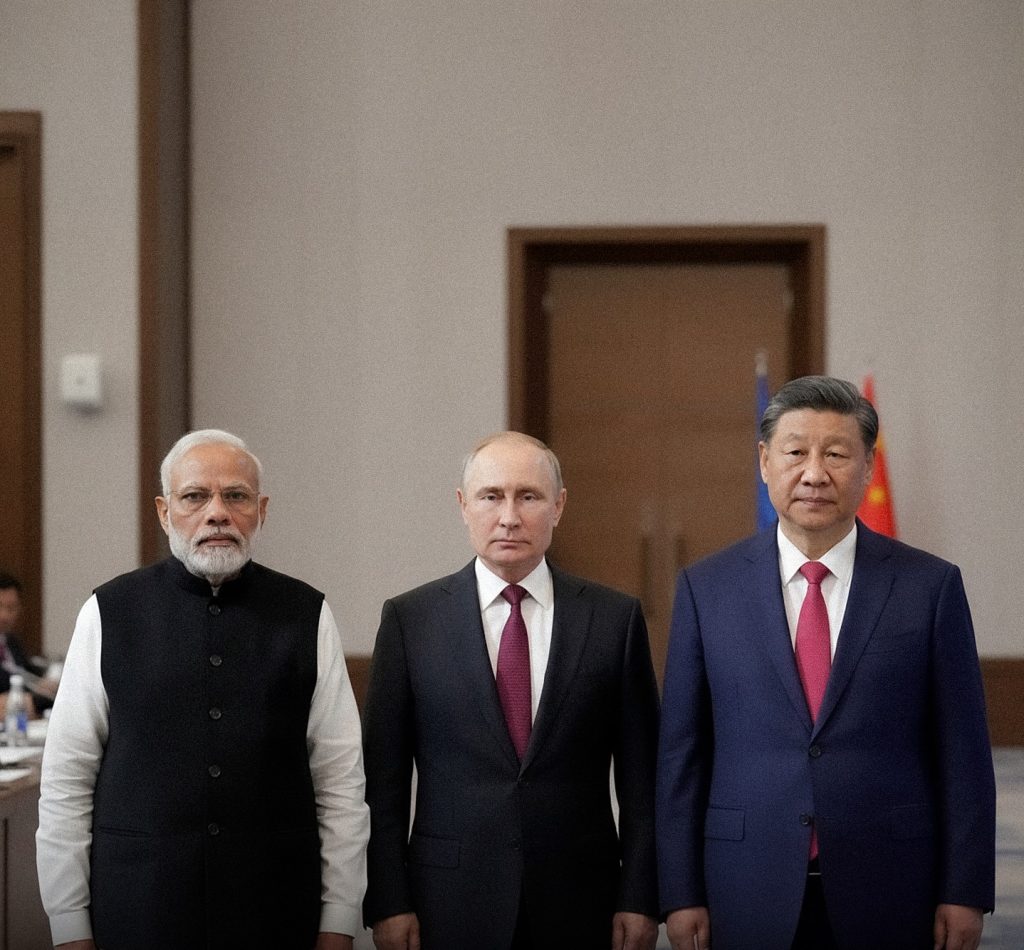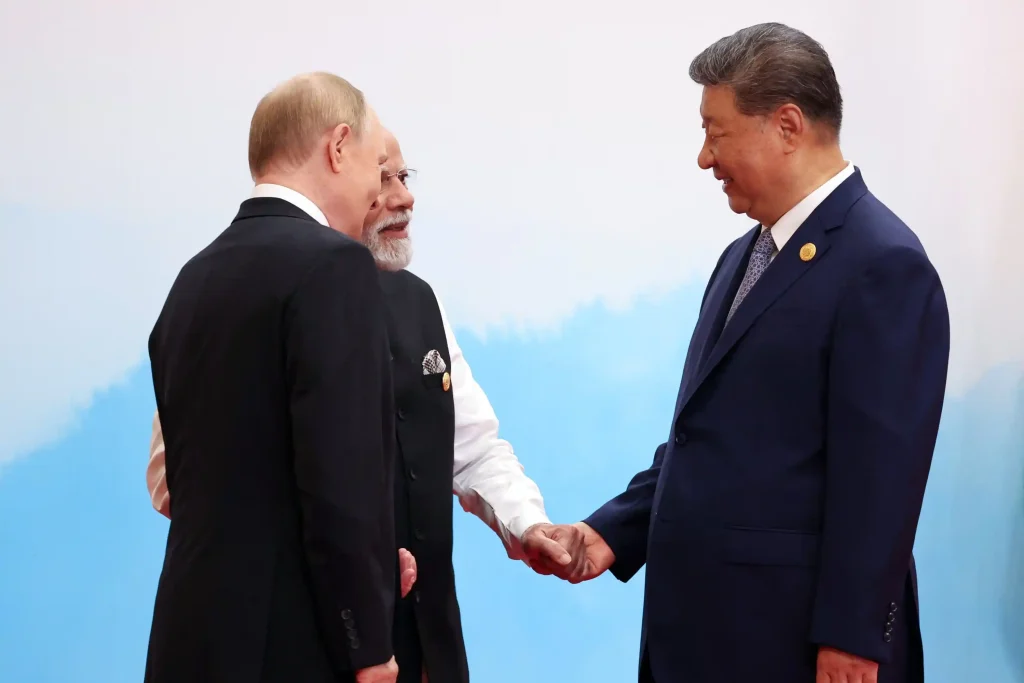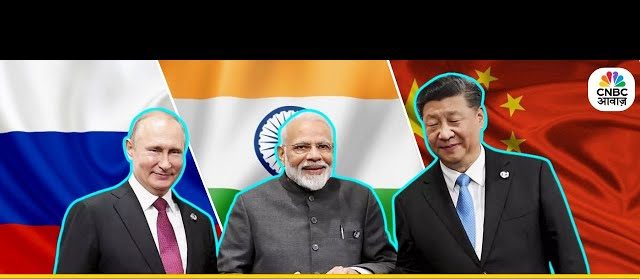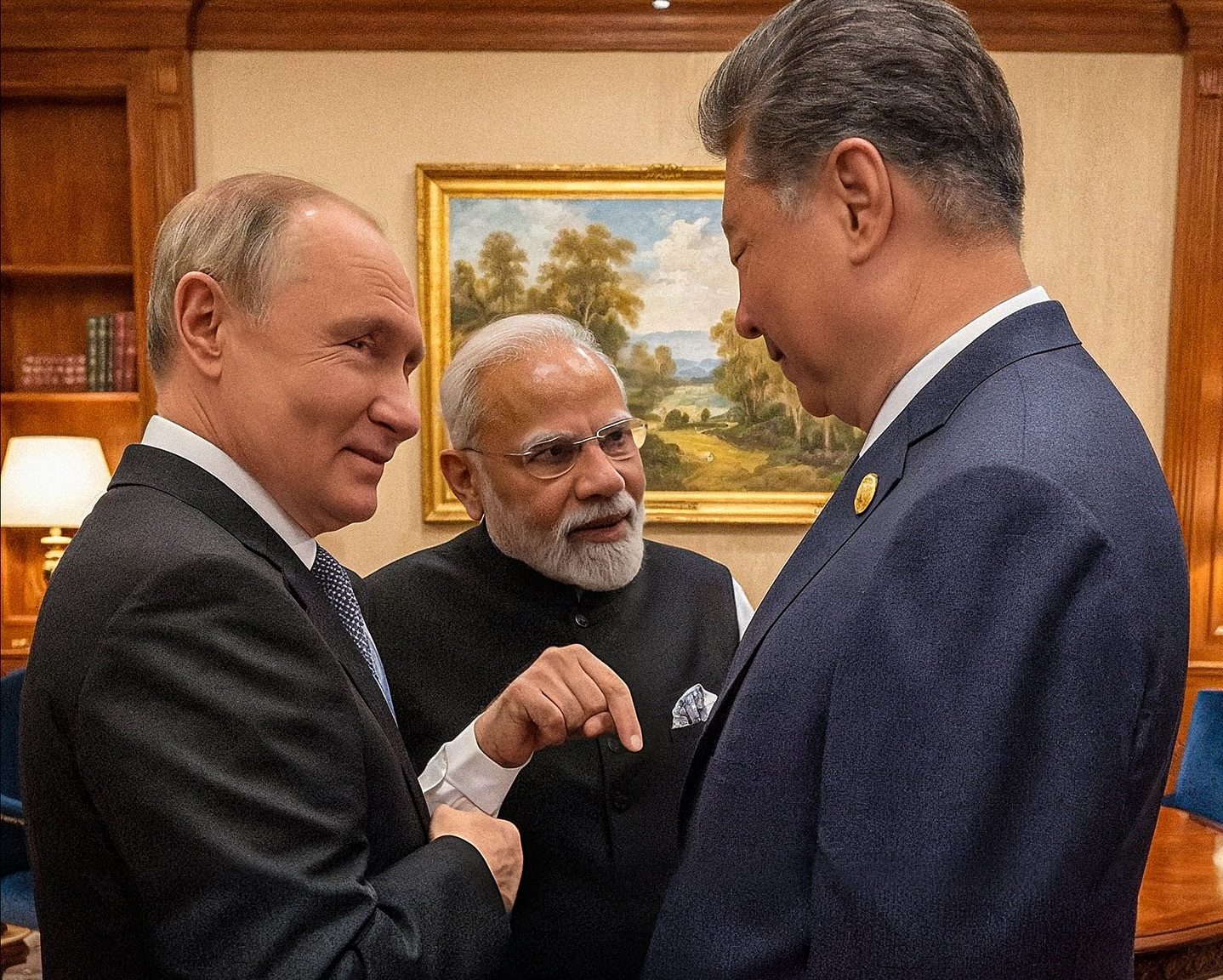Xi Jinping, Vladimir Putin, and Narendra Modi Meet at 2025 Shanghai Cooperation Organisation Summit, Representing Nations Home to Over 3 Billion People 🌏
In a moment that captured the world’s attention, three of the most powerful leaders on Earth—China’s Xi Jinping, Russia’s Vladimir Putin, and India’s Narendra Modi—stood shoulder to shoulder at the Shanghai Cooperation Organisation (SCO) summit in Tianjin. It was a meeting that visually and politically represented more than three billion people, nearly half of the world’s population, and its significance is hard to overstate. The SCO, which began in 2001 with a handful of Central Asian nations and China and Russia as founding members, has evolved into one of the most important multilateral groups outside of the Western-led institutions. India’s growing presence in the group has reshaped the balance, creating a platform where Asia’s largest powers can directly influence global politics, economics, and security conversations without the dominance of Western voices.
The 2025 summit carried an added weight, not just because of the leaders who attended, but because of the timing. The global economy is fragile, supply chains remain sensitive after years of pandemic disruption, and energy markets are shifting rapidly as countries seek both stability and sustainability. Against that backdrop, Xi Jinping made clear that China wanted the SCO to push for a new development bank, designed to complement or even rival Western financial institutions, and to lead the way in setting rules around artificial intelligence and emerging technologies. According to Reuters, about 20 leaders were present in the room, and the buzz around these proposals was unmistakable.

For Vladimir Putin, the summit was another opportunity to show that Russia remains deeply connected to Asia even as it continues to face sanctions and criticism from the West. Standing with Xi and Modi, Putin reinforced the idea that Russia’s future is increasingly linked to Asia rather than Europe. He used the opportunity to talk about security, energy, and the need for countries in the region to stand strong against what he described as Western interference. His presence alongside Xi and Modi sent a clear message: Russia is not isolated, and its partnerships in the East remain alive and influential.
Narendra Modi’s role was perhaps the most carefully watched. India, with its 1.4 billion people and growing economy, sits in a unique position. On one hand, India is strengthening ties with the United States and its allies through forums like the Quad. On the other, it remains a full member of the SCO and a partner with countries that often find themselves opposed to Washington. Modi’s words at the summit emphasized cooperation, development, and the importance of sovereignty. His presence, framed between Xi and Putin, highlighted India’s balancing act—engaging with both worlds while trying to chart its own independent path.

For the billions of people these three leaders represent, the symbolism of their meeting was striking. If even a portion of the SCO agenda, such as AI cooperation or the creation of a new development bank, becomes reality, the ripple effects will stretch far beyond Asia. Supply chains could shift, energy flows could be redirected, and security arrangements across the continent could take on entirely new shapes.

The Tianjin summit may not have produced an immediate transformation of global systems, but the image of Xi, Putin, and Modi together was powerful enough on its own. It served as a reminder that the center of gravity in global politics is tilting steadily toward Asia. Whether the world embraces this shift with optimism or unease, the reality is that nearly half the planet’s population just had their voices represented in one room.

